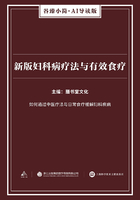The Fundamental Law of Collective Valuation If the burden of taxation is distributed among the citizens in the manner just described, a very remarkable contrast emerges between the law which regulates pubic imposts, and that law of price (under free exchange on a market uncontrolled by the state)which regulates the burden that must be borne by all individuals when they wish to acquire goods produced or offered for sale by private industry. As return for the services of the state, or as contribution towards meeting the costs of these services, each individual gives the maximum which he is able to give, the full equivalent. In free exchange, on the other hand, the (approximate) maximum is paid only by the marginal purchaser; the other purchasers get off more cheaply, as the one price is established for all, and no one requires to pay more than the equivalent of the marginal purchaser, even although his own valuation may be much higher. The state, accordingly, takes advantage of the purchasing power of every one in a much more thorough way; and, more especially, the purchasing power of the wealthier citizens. It does not suffer the rich to pay according to the standard of the poor, but insists that every one shall be taxed in accordance with the full measure of his own personal estimate of the value which the services of the state have for him.
Hence is derived a peculiar law of national economic valuation -- as of collective valuation generally. In every self-contained economy equal quantities of goods have an equal value; similar items, or fractions, or units, of a stock have for their owner the same value. This law holds also in all free economies, and for the economic bodies created by it; similar goods have on the same market the same price, the same exchange value. But it is different in the case of the national economic body, as, generally, in that of every collective economy which binds together several otherwise independent economic subjects to carry out distinct purposes. Here the goods which belong to the individual economic subjects, and from which the taxes are to be drawn, are valued as unequal, -- equal taxes have unequal value, the same value is expressed by unequal taxes. The valuation of individual wealth and income on the part of a government agrees exactly with the individual degree of valuation for purposes of taxation; a government estimates the property of each person exactly as he estimates it himself, and in so far the collective economy is not like a self-contained economy. Not until the government comes to the spending of the taxes does it act in accordance with the universal law; not till then do sums, which were valued as unequal so long as the government had to collect them, come to be equal in value.(1*)Not only, then, does the levying of taxes rest on valuation, but in the levying of taxes is directly expressed a distinct valuation; a valuation which -- as regards the wants of the public housekeeping -- estimates every good at a lower figure in proportion to the number of other goods which are bound up with it in one individual's wealth, or in proportion to the limited character of the private wants to which it is devoted. In other words, the theory of taxation, in its economic foundations, belongs not to the applications of the theory of value, but to the theory of value itself.
The fact that, when levying taxes, a government, in contrast to the general law of ordinary economic life, rates economic property differently according to the individual circumstances of those who are taxed, has, economically speaking, undoubtedly beneficial results. It allows that the public burdens of the poorer classes be put at a lower figure; it allows the ability of the wealthier to bear taxation to be more fully utilised; and it thus places the taxes where they will cause least injury to the satisfaction of private needs. Were the state to act otherwise;were it to impose equal contributions, like poll taxes, on every citizen; it would inflict on the poorer classes privations in no way compensated by the extended indulgence in luxury that would now be possible to the richer.















